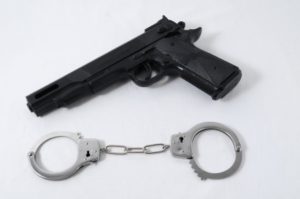 Justice Patterson concluded with the following in relevant part: For the March 3, 2011 incident in Winslow Township, the trial court acted within its discretion when it imposed sentences for first-degree robbery and fourth-degree unlawful taking of a means of conveyance that were consecutive to defendant’s sentences for other offenses. The court, however, imposed a sentence for defendant’s conviction of second-degree unlawful possession of a weapon to run consecutively to defendant’s sentences for first-degree robbery and other offenses committed in the same criminal episode. Its findings were limited to a statement that “the elements of this offense are separate and distinct from the charge of armed robbery, and there can be no free crimes.” That determination does not meet the requirements of Yarbough, and should be reconsidered on remand.
Justice Patterson concluded with the following in relevant part: For the March 3, 2011 incident in Winslow Township, the trial court acted within its discretion when it imposed sentences for first-degree robbery and fourth-degree unlawful taking of a means of conveyance that were consecutive to defendant’s sentences for other offenses. The court, however, imposed a sentence for defendant’s conviction of second-degree unlawful possession of a weapon to run consecutively to defendant’s sentences for first-degree robbery and other offenses committed in the same criminal episode. Its findings were limited to a statement that “the elements of this offense are separate and distinct from the charge of armed robbery, and there can be no free crimes.” That determination does not meet the requirements of Yarbough, and should be reconsidered on remand.
Finally, the court should reconsider on remand its imposition of consecutive sentences for defendant’s convictions of second-degree unlawful possession of a weapon and fourth-degree unlawful taking of a means of conveyance, arising from the March 29, 2011 incident in Gloucester Township. As we have previously observed, the sentencing court’s focus “should be on the fairness of the overall sentence.” Miller, 108 N.J. at 121. In resentencing defendant on remand, the trial court should consider the fairness of the aggregate sentence imposed for the eighteen offenses as to which defendant’s convictions have been affirmed. See State v. Abdullah, (2005) (reminding our courts “that when imposing either consecutive or concurrent sentences, ‘the focus should be on the fairness of the overall sentence,’ and that they should articulate the reasons for their decisions with specific reference to the Yarbough factors”). Thus, we caution the court on remand to consider the overall sentence — a necessary feature in any Yarbough analysis.
With so many consecutive sentences and so little analysis, there is a distinct chance that the trial court sought to punish the defendant for exercising his right to a jury trial. Trials make work for courts. They also slow down a court’s number of case dispositions. Judges with too few dispositions have to answer for their perceived lack of efficiency.
